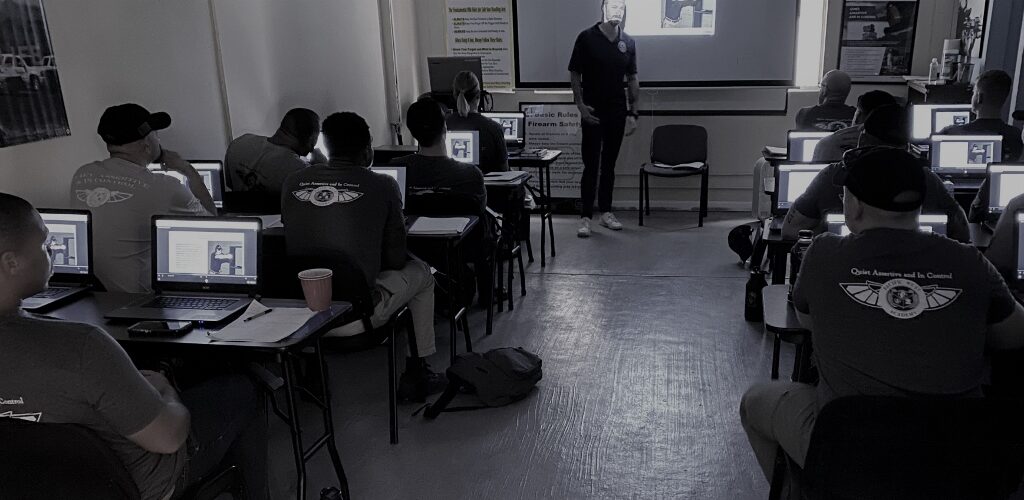

Disqualifications for becoming a Bodyguard in CA
Disqualifications for becoming a Bodyguard in CA
Legal Requirements for Becoming a Bodyguard in California
Before diving into the disqualifications, it’s important to understand the basic legal requirements for becoming a bodyguard in California. These requirements are put in place to ensure the safety of both the clients and the public. Some of the core requirements include:
Licensing: California law mandates that individuals engaging in the business of providing security services, including bodyguard services, must obtain a California Guard Card licensed by the Bureau of Security and Investigative Services (BSIS). This license ensures that individuals have met certain training and background-check standards.
Training: Prospective bodyguards need to complete a training course from a training facility, licensed through the BSIS. The training covers topics such as legal issues, use of force, conflict resolution, and weapons of mass destruction. For example, Pacific West Academy is licensed by the BSIS AND is the only Department of Education certified security trade school. (Pacific West Academy is ACCET certified). During the CESS program at PWA, administrators assist with guard card and certification paperwork while students focus on the immersive training given to them by veterans and practicing executive protection agents.
Background Check: A thorough background check is a crucial part of the licensing process. This is done to ensure that individuals with certain disqualifying factors are not granted a license to become security professionals. The background checks are specifically done by the Department of Justice and the FBI. Fingerprint scan is required and reviewers will assess any applicant’s legal history for convictions.
Gaining Employment: After training and licensing, guards must become W2 employees. Trained and licensed individuals cannot just start offering services. Guards either must legally start their own business or become employed by a security agency.
A Bodyguard’s Core Responsibilities
A bodyguard, or a close protection officer (CPO), provides personal security to individuals who, due to their social status, profession, or wealth, may be at risk. The bodyguard’s main responsibility is to ensure the safety and well-being of their client. However, their job usually involves a range of duties beyond just physical protection.
Core Responsibilities:
Risk Assessment and Threat Mitigation: As a bodyguard, your job is to evaluate potential threats and vulnerabilities. This helps develop security plans to minimize risks.
Physical Protection: CPOs are trained to protect their client from physical harm. This can include anything from assaults and attacks to kidnappings.
Surveillance and Reconnaissance: A big part of CPOs’ duties involves handling surveillance. This is necessary in order to:
- Identify potential threats
- Gather intelligence
- Plan safe routes
- Escort their client to various locations.
Emergency Response: An important part of your bodyguard training focuses on responding to emergency situations such as a medical emergency or a security breach. You will develop the skills to quickly and safely remove the client from danger.
Communication and Coordination: Effective communication is key in this business. As a well-trained CPO, you are expected to keep communication lines with other team members open at all times, ensuring that your strategies are coordinated and comprehensive.
Travel Security: As a CPO, you might travel a lot as your job is to escort clients during travel. In addition, you will be required to run regular vehicle checks, plan secure routes, and provide tactical driving skills.
Access Control and Security Checks: Bodyguards are in charge of controlling access to the client’s surroundings. This involves conducting security screenings and validating credentials of those who attempt to enter restricted areas or come into direct contact with the client.
Venue and Event Security: The responsibility of a CPO is to run pre-checks of venues and events, identify security risks, and coordinate with local security personnel.
Key Skills and Qualities:
- Physical Strength and Fitness: The CPOs physically need to be able to handle emergencies and perhaps even physical fighting.
- Mental Alertness and Sharpness: They need to assess situations quickly, foresee threats, and remain vigilant round the clock.
- Communication and Teamwork: Bodyguards need to be able to coordinate with other security personnel and the client.
- Tactical Skills: They must be trained in various tactical techniques like defensive techniques, handling of weapons, and rescue operations.
- Discretion and Professionalism: They should be low-key without seeming suspicious and be discreet while moving around.
Who Might Need a Bodyguard?
CPOs are often hired by:
- High-profile individuals such as celebrities, politicians, business executives, wealthy individuals, and royalty.
- Organizations in need of protecting their employees or assets. These are usually either companies whose employees may be targeted or businesses that need to protect sensitive information or properties.
- Individuals under specific threats, whether they have received them or are at risk due to their profession or other circumstances.
Bodyguard Disqualifications:
Several disqualifications can prevent an individual from becoming a bodyguard in California, among other states. These disqualifications are designed to maintain the integrity of the profession and to ensure that individuals with the right qualifications and ethical standards are entrusted with the security of clients. Some common disqualifications include:
Criminal History: As previously mentioned, individuals with certain criminal convictions may be disqualified from becoming a bodyguard. Convictions related to violent crimes, theft, fraud, and drug offenses can raise concerns about an individual’s suitability for a profession that requires trust and responsibility. There is a process of appeals. Any applicant initially denied is afforded the opportunity to appeal the decision of the BSIS.
Substance Abuse: Ongoing substance abuse problems, especially those involving drugs or alcohol, can disqualify an individual from obtaining a bodyguard license. Substance abuse could compromise a bodyguard’s ability to provide effective protection. Some employers will require urinalysis.
False Statements: Providing false information on your application or during the licensing process can lead to disqualification. Honesty and transparency are crucial traits for any aspiring bodyguard.
Lack of Training: Failing to complete the required training or lacking the necessary certifications can also lead to disqualification. Proper training ensures that bodyguards are equipped with the skills they need to handle their responsibilities. California requires guard training of 8 hours; 4 hours of ‘Power to Arrest’ training and 4 hours of ‘Weapons of Mass Destruction’ training.
Additionally, each licensed professional is required to complete 32-hours of additional training within their first year of employment. Many security professionals already in the industry choose to maintain and enhance their profession by going through training courses every few years.
Immigration Status: Non-U.S. citizens must have the appropriate immigration status that allows them to work legally in the United States. Certain immigration statuses may disqualify individuals from obtaining a bodyguard license.
Becoming a bodyguard in California is a noble profession that requires a combination of physical skills, mental acuity, and ethical integrity. The state’s stringent regulations and disqualifications are in place to ensure that only qualified and trustworthy individuals are eligible to provide protection and security services.
Prospective bodyguards should be aware of these disqualifications and strive to meet the necessary requirements, both in terms of training and personal conduct. To assist with training,
Pacific West Academy strengthens the training and opportunities needed to excel in the security and executive protection fields. If you’re clear of disqualifying criteria, consider joining the executive protection field. Start your training by enrolling in Pacific West Academy’s 39-day immersive training program.
